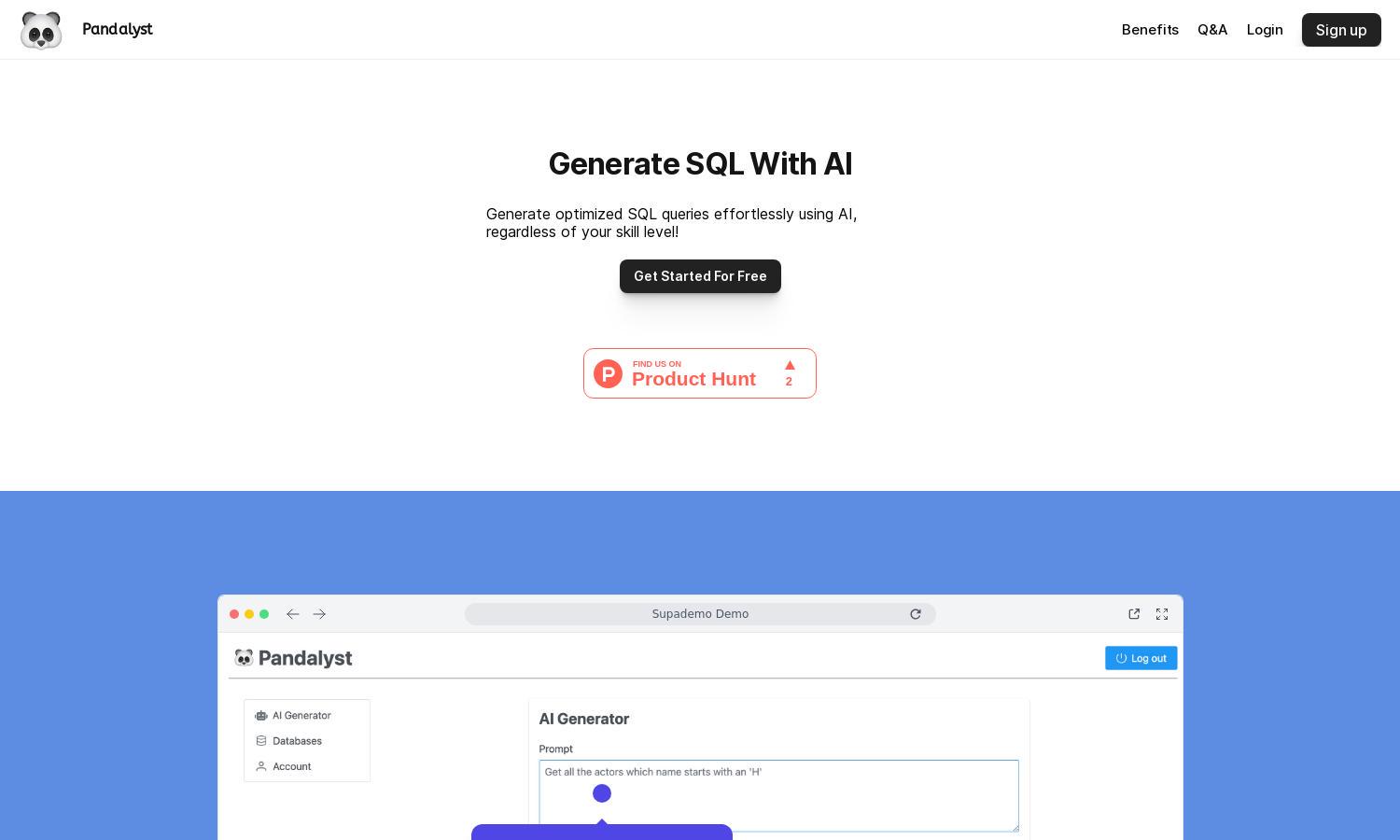Pandalyst

About Pandalyst
Pandalyst is designed to help users write SQL queries efficiently, targeting both beginners and experienced SQL developers. With its innovative AI generator, Pandalyst allows users to work faster and with greater accuracy, fixing mistakes along the way, ensuring data security and enhancing productivity.
Pandalyst offers flexible pricing plans, starting with a Basic plan at $6.99/month for 300 queries, and a Pro plan at $16.99/month for 1000 queries. Users benefit from enhanced features like database schema customization and AI generation, encouraging upgrades for a richer experience.
Pandalyst features a clean, intuitive interface that streamlines the SQL query writing process. It guides users through query generation, making navigation simple and enjoyable. Notably, its layout enhances productivity, allowing users to focus on their SQL needs without unnecessary distractions.
How Pandalyst works
Users begin by signing up for Pandalyst and can quickly add their database schema. The platform's AI generator assists in writing SQL queries, allowing users to easily rectify any mistakes. As users navigate the interface, they experience a straightforward process, facilitating effective query creation.
Key Features for Pandalyst
AI SQL Generator
The AI SQL Generator is a standout feature of Pandalyst, enabling users to create SQL queries rapidly. This innovative tool automatically analyzes input and offers optimized query suggestions, allowing users to enhance their SQL writing efficiency and minimize errors significantly.
Database Schema Support
Pandalyst’s Database Schema Support allows users to easily add and visualize their database structures. This feature simplifies the process of query generation, helping users tailor their SQL queries accurately while ensuring compatibility with their unique data designs, enhancing overall user experience.
Error Correction
Pandalyst includes an automatic error correction feature that identifies and fixes SQL mistakes in real time. This unique aspect empowers users to learn from their errors, fosters confidence in writing queries, and ultimately leads to cleaner, functional SQL code with less frustration.
You may also like:








